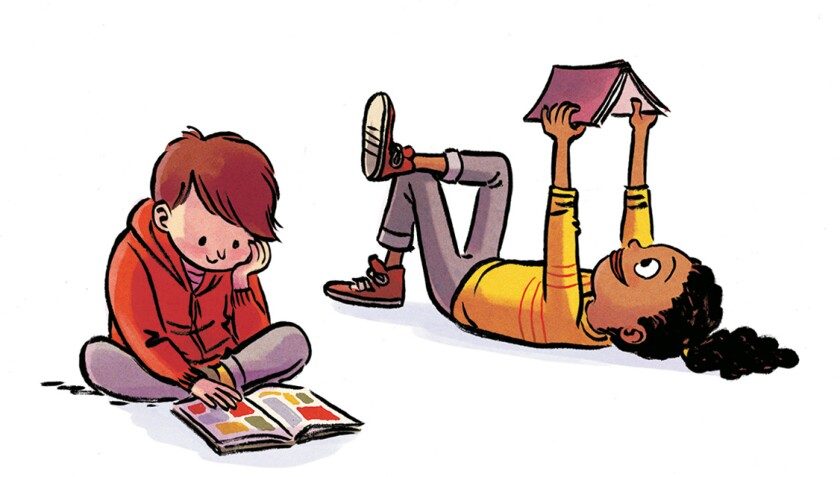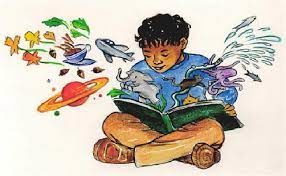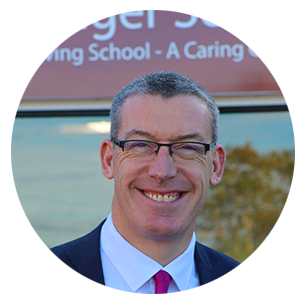- Home
- About us
- Curriculum
- Personal Development
- Parents
- Policies
- Jobs
- Contact
- Office 365
- DONATE
The transition from primary school to a secondary setting is a milestone in every young person’s life. In addition to new routines like reliably packing a school bag and perhaps travelling independently to school, there is also an increased emphasis on academic results. But what happens to the focus on reading around that time?
During Key Stages 1 and 2, pupils learn the skills to decode and read phonetically – but after that’s achieved, parental input often takes a step back. The tradition of a bedtime story can fall by the wayside. It is during Key Stage 3 that students with access to a broad and current library collection can really learn to love reading and firmly establish it into their daily routines. Pre-teens are the formative years for young people to become readers proper, and of their own accord.

Surveys show us that the time spent reading for pleasure decreases when children start at secondary school. However, research also tells us that reading is the most important indicator of educational success in a child. This means that, regardless of a child’s circumstances and their familial lifestyle – for example, whether their parents/carers went to university or left school at 15, whether they live in a tower block or a gated residence, own a yacht or use public transport… reading is a great leveler. It can give students the edge on those all-important results. It is how we understand each other and the world around us. Every leader is a reader. It is powerful stuff.
Reading activates the areas of the brain responsible for increasing emotional intelligence and empathy. As many parents/carers will attest, teenagers can seem to lean more towards apathy than empathy. Year 7 is such a special time. Friendships can be made for life and students can be malleable and keen. LRC staff are in a unique position, often knowing all students as they progress through the school from their KS3 timetabled reading lessons.
During reading lessons, we spend time with students choosing the correct book for them, targeting any intervention needed and stretching our high performing students by recommending richer language literature to them. We set targets to help students build up the stamina to finish a longer book. Targets can also help students manage the progression from celebrity author to something more highbrow.
Rewards are important too. Students who show enthusiasm and effort in their reading and recording of their reading by completing Reading Log entries, are rewarded with ‘Harry Potter Tickets’. These tickets are put into a big reading draw at the end of the academic year, giving students the chance to win superb prizes and are designed to bring further enjoyment to their reading routine and appreciation of reading.
We ask students to think mindfully about their lesson dedicated to reading by explaining that reading for pleasure is something which many group-ups would love to indulge in during the middle of their working day.
Penny Joelson, author of three unputdownable YA thrillers and mysteries, says:
“I know teenagers are hard to engage and I try to make my books very engaging and accessible to grab readers and keep them hooked. Saying that, although an avid reader at primary age, I read little in my teens. I found the transition to adult books really hard and there wasn’t YA [when I was growing up].
“I’d have really valued a librarian who might have guided my choices. I think help to find the ‘right book’ for that Year 7 child can make a big difference. If any students who don’t like reading or can’t find a book they like got a 1:1 with a school librarian, that could make a big difference.”
It is such an exciting time for young adult literature, with new voices being represented all the time. There is something for everyone to relate to or escape to. Competition for young people’s time is fierce. They have infinite entertainment in the device in the palm of their hand. We encourage our students to use our preferred e-book platform from any device they have access to.
The writer Jacob Ross notes that reading is the only mode of communication which engages three faculties at the same time: the rational, the emotional and the imaginative. So, it is definitely more valuable than an evening spent in front of Netflix.
There will be much work to be done to draw young people back into the realm of reading. Like exercise, young people may struggle to want or make time to pick up a book: however, they’re guaranteed to feel better afterwards.
It’s all about routine and helping young people to manage their time and priorities. As ever, educators and families alike will need to share this responsibility.

We would like to acknowledge Roshan Hunt & Renaissance Learning for information included the above.




Alsager School is one of the highest performing schools in Cheshire East. Take a look at our prospectus to find out more.
Alsager School, Hassall Road, ST7 2HR
© 2024 All Rights Reserved